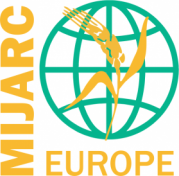When MIJARC Europe participants travel to our activities, we ask for an additional fee: the carbon offset fee. We now want to reinvest the carbon offset fees into a project that aims to prevent and reduce greenhouse gas emissions. We are therefore launching a contest for our local and regional groups to win an award of 240 EUR to be used for their project. The aim is to foster young people to address the danger of greenhouse gas emissions. At the same time, we want to support the work of MIJARC Europe youth groups.
Eligibility criteria
- The applicants must be a youth led group
- The applicants must be from a MIJARC Europe member organization (local or regional groups included)
- The project to be awarded needs to be mainly take place within the calendar year of 2021
- The prize money must not exceed 50% of the total project costs
- In order for us to evaluate the project, a transparent presentation on the use of the money needs to be handed in to the MIJARC office by June 2021
Award criteria
We want to evaluate the different projects in a transparent process. We will therefore assess the:
- Number of people involved
- Approximate amount of CO2 that is reduced
- Sustainability of the project (if it is a long-term project, what materials and which resources are/were used)
- Possibility to raise sponsorship by other donors
- Visibility of the project in local/regional media
- Quality of presentation.
We therefore call on you to either present your projects on greenhouse gas reduction or start a project on this topic and establish a presentation on it.
How to apply
You should send us by e-mail: office@mijarc.eu in a .pdf or .doc format, with maximum 5 A4-pages, your group’s presentation explaining as detailed as possible how your initiative fulfils the eligibility and award criteria explained above. Please, when sending your e-mail write in the subject line “Carbon Offset Price Application”. An email confirming the reception of your application will be sent to you as soon as possible. If you do not receive it within one week after you sent your application, please contact us
Deadline for receiving applications: 2 of April 2021 at 12:00 pm (CET time).
Timeline
- 2 March 2021 – Call for proposals
- 2 April 2021 – Deadline for applications
- May 2021 – Communication of the award decision
If you are selected for the award, you will receive 50% of the amount immediately. The other 50% will be sent when MIJARC Europe will receive a final report. The report needs to include a transparent cost calculation and how you intend to do the follow-up of the project.
In case you have questions or need any further information, please contact us: office@mijarc.eu
